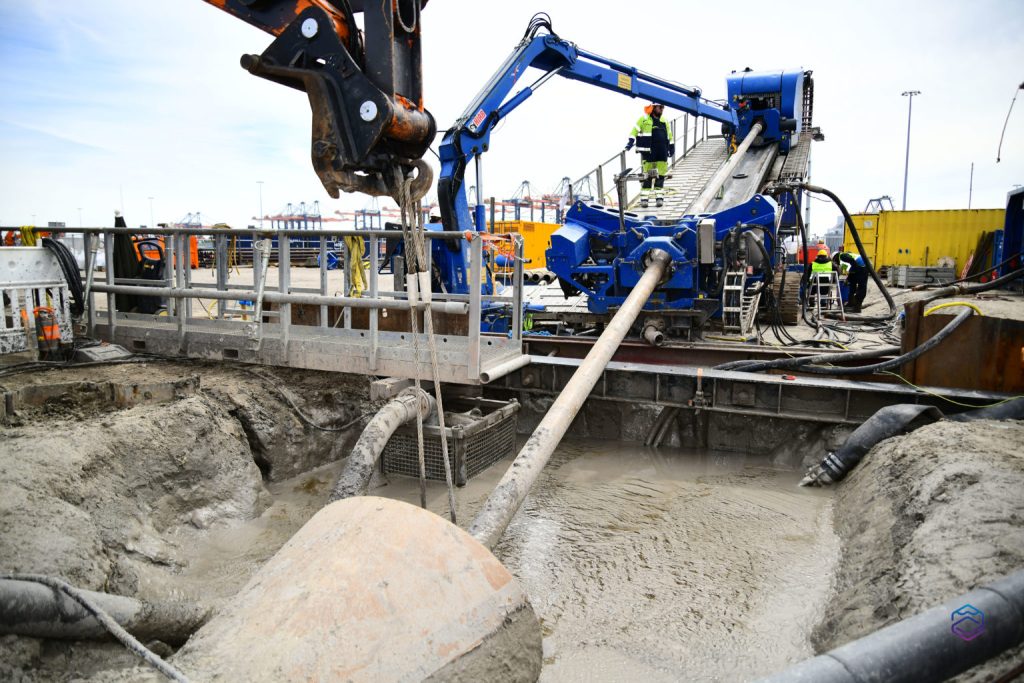6 June 2024 | Roelof Kleis interviewed Martijn Duineveld for Resource, the Wageningen University magazine:
Collective researches climate obstructors
Research network that Martijn Duineveld belongs to, aims to expose the mechanisms at work.
We all know that the climate is changing dramatically. There is incontrovertible scientific evidence that humanity is responsible. We also know what kinds of measures are needed to turn the tide. And yet it is hard to get effective climate policy off the ground. Its opponents deliberately obstruct, deny and delay it. A collective of scientists, research journalists and NGOs have joined forces to expose the strategies and structures at work. The initiative for this came from cultural geographer Martijn Duineveld.

Martijn Duineveld: ‘Serious investments are currently being made in fossil fuel infrastructure projects such as the transportation of CO2 out to sea. That way you restrict the possibilities for saying goodbye to that fossil industry. The photo shows the first drilling for CO2 storage under the North Sea, near the sea wall on the Maasvlakte (15 April 2024). Photo PorthosCO2
It was prompted somewhat by chance when, at a party in The Hague two years ago, he heard about the annual technology festival Generation Discover. ‘A nice children’s festival about sustainability, wind turbines and an energy future in which gas was still indispensable. Organized by Shell. I was outraged. After all we now know about climate change, is Shell really targeting children in promoting fossil fuels?’
That same evening, his indignation turned into a resolution. ‘This is interesting, I’m going to research it.’ Duineveld read Erik M. Conway’s famous book Merchants of Doubt, got in touch with an American group of researchers studying climate obstruction, and found allies in his own country. The outcome is Climate Obstruction NL, a Dutch research network. The book Climate Obstruction across Europe comes out this month, and includes a chapter by Duineveld about the Dutch situation.
Isn’t science catching up on this very late?
‘Yes. There has been a lot of journalistic research on climate obstruction by platforms such as Follow the Money. NGOs like Friend of the Earth do good, sound research. And there are also a few studies by transition researchers, which look at the interconnections between the energy industry and the government, and how that creates massive delays and obstructs change. But obstruction research doesn’t really exist in the Netherlands yet.’
Why not?
‘You can identify several power clusters that are behind obstruction. The major industries and the established elites are examples. But perhaps even more powerful is the cluster of enablers: those who make obstruction possible, whether deliberately or not. Science is among them. Including WUR.’
European research funds are highly ideological and focussed on technofixes
‘For a long time, Wageningen concentrated entirely on technical solutions to climate problems. Research financiers play an important role there too. European research funds are highly ideological and focussed on technofixes. The money doesn’t go to research on how we have become accomplices and co-responsible for slowing down the climate agenda or steering it in a certain direction. The realization that many problems can no longer by solved by technical means is slowly sinking in now – even in Wageningen, fortunately.’
In Climate Obstruction NL, you work with journalists and NGOs. Isn’t there a danger of the research being affected by activism and bias?
‘The question assumes that there are scientists who can avoid the normative. That’s not the case. We all have normative biases. In fact, most scientists are activists. Activists for the status quo. We diligently do our work and are part of the legitimation factory for established interests. If you manufacture air filters that are claimed to make livestock farming more sustainable, the air might be a little bit cleaner. But you are also legitimizing the continuation of that livestock farming. That is a political choice.’
How do you safeguard scientific impartiality in today’s society?
‘In October, we’ll be running a conference at which we will spell out the expectations of all parties. You’ve got to be very aware of how knowledge is used or can be misused. NGOs gather knowledge for use in court cases. What counts for journalists is news. Scientists want to document patterns and structures. It’s important to know what the various groups are going to do with the knowledge they acquire.’
What is the network going to study?
‘Climate Obstruction NL is a network of individual researchers. Some of them look at the traditional forms of obstruction: climate denial and impeding measures. You could call this covert obstruction: acting as though you’re going green while most of your investments are in the fossil industry. A second issue is the normalization agenda around the use of fossil fuels. Companies like Shell are very good at greenwashing, one of their approaches being sponsorship and investments in the cultural sector.’
And what are you personally going to do?
‘My interest as a cultural geographer is in material obstruction. Currently, big investments are being made in fossil infrastructure projects that we are saddling future generations with. Take the heat networks that are being created to make use of residual heat from the industry in Rotterdam port. That legitimizes the continued existence of the fossil industry. You legitimize a polluting industry with a heat network. The same goes for investing in transportation of CO2 to the sea, with which you restrict the possibilities for saying goodbye to that fossil industry. Carbon capture and storage (CCS) can be a good option for cleaning up CO2, but it is now mainly being used to legitimize existing industries. With these kinds of investments, you colonize the future. We are saddling future generations with the choices we are making now.’
Read the book Climate Obstruction across Europe free online.